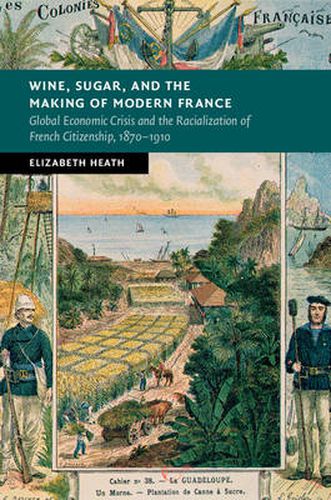Readings Newsletter
Become a Readings Member to make your shopping experience even easier.
Sign in or sign up for free!
You’re not far away from qualifying for FREE standard shipping within Australia
You’ve qualified for FREE standard shipping within Australia
The cart is loading…






This is an innovative study of how race and empire transformed French republican citizenship in the early Third Republic. Elizabeth Heath integrates the histories of the wine-producing department of Aude and the sugar-producing colony of Guadeloupe to reveal the ways in which empire was integral to the Third Republic’s ability to stabilize a republican regime that began to unravel in an age of economic globalization. She shows how global economic factors shaped negotiations between local citizens and the Third Republic over the responsibilities of the Republic to its citizens leading to the creation of two different and unequal forms of citizenship that became constitutive of the interwar imperial nation-state and the French welfare state. Her findings shed important new light on the tensions within republicanism between ideals of liberty and equality and on the construction of race as a meaningful social category at a foundational moment in French history.
$9.00 standard shipping within Australia
FREE standard shipping within Australia for orders over $100.00
Express & International shipping calculated at checkout
This is an innovative study of how race and empire transformed French republican citizenship in the early Third Republic. Elizabeth Heath integrates the histories of the wine-producing department of Aude and the sugar-producing colony of Guadeloupe to reveal the ways in which empire was integral to the Third Republic’s ability to stabilize a republican regime that began to unravel in an age of economic globalization. She shows how global economic factors shaped negotiations between local citizens and the Third Republic over the responsibilities of the Republic to its citizens leading to the creation of two different and unequal forms of citizenship that became constitutive of the interwar imperial nation-state and the French welfare state. Her findings shed important new light on the tensions within republicanism between ideals of liberty and equality and on the construction of race as a meaningful social category at a foundational moment in French history.